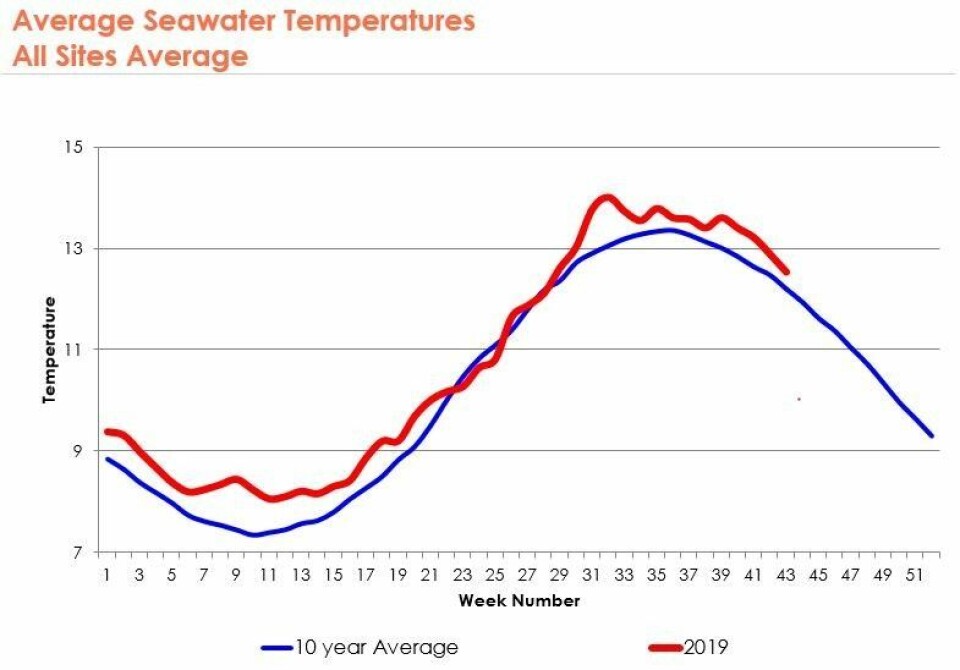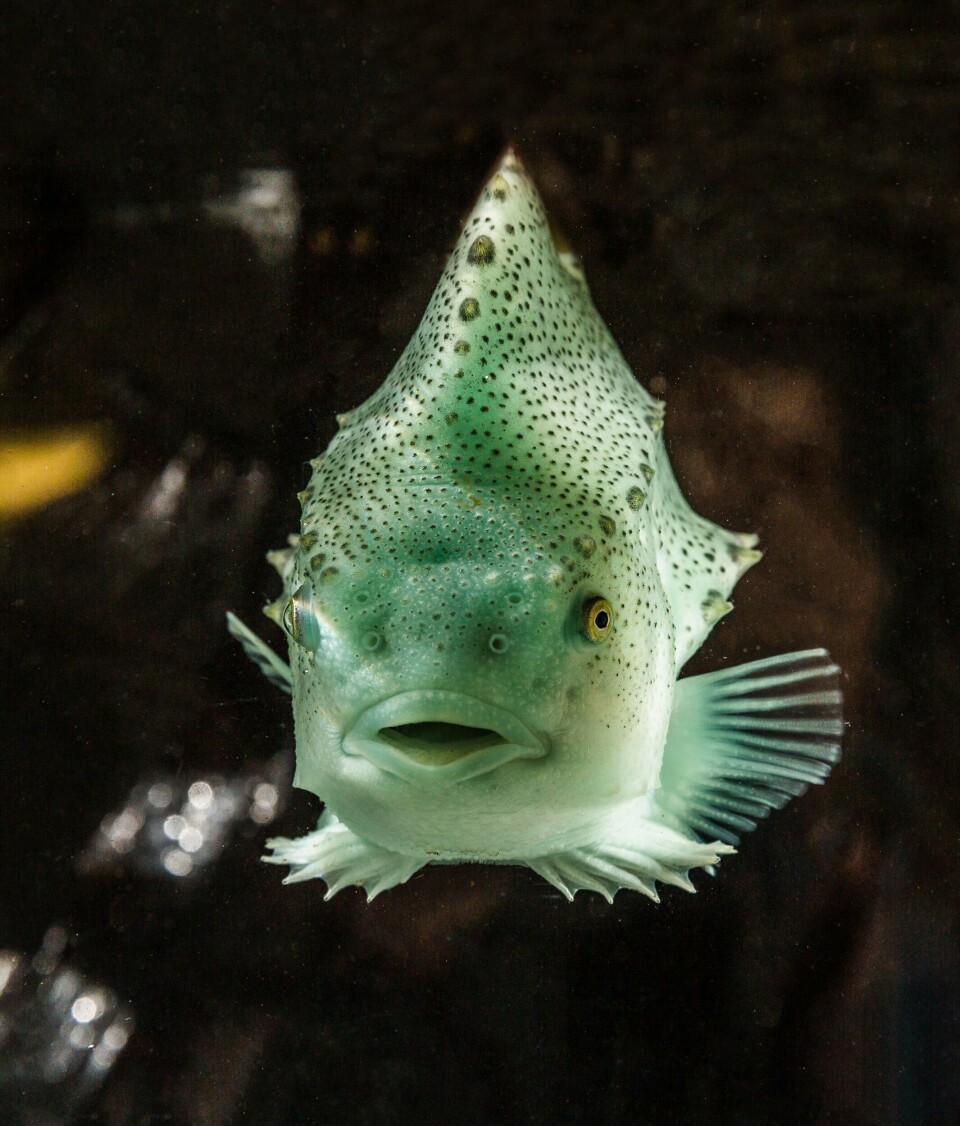
Temperature blamed as salmon survival rate falls
Mowi Scotland has given further details of the problems being caused by warmer than average sea temperatures that have occurred throughout 2019.
It follows an announcement by Mowi’s group chief executive, Alf-Helge Aarskog, today that an algal bloom at the Scottish operation’s Rum site “took out quite a bit of fish” during the third quarter.
Mowi Scotland has had an average survival rate of 76% for nine sites harvested over the last five months, well below its target of 90%.

Cleaner fish
Lumpfish used as cleaner fish in the cages have also been victims of the warmer water, something that caused concern for the Animal and Plant Health Agency (APHA).
Algal blooms and salmon gill disease are more prevalent in warmer water, which also contains less oxygen. Gill disease also prevents farmers being able to treat salmon for sea lice, a problem that is exacerbated because lice breed faster when the water temperature is higher. It means fish survival falls and farmers sometimes have no option other than to harvest fish early.
In a statement on its website, Mowi said warmer than average sea temperatures that peaked in July provided challenges to salmon and lumpfish at several sites.
Welfare ‘not adequately managed’
It said a recent inspection of Mowi’s Bagh Dail nan Ceann farm by the APHA raised concern that lumpfish health and welfare was not adequately managed between July 10 and August 12, a period that had the highest average sea temperatures.
In a letter to Mowi on September 16, APHA said: “You have not been able to show that adequate actions were taken in the period between 10/7/19 to the 12/08/19 in order to promote the welfare of the lumpfish under your responsibility. Not taking effective decision at [an] earlier date has prolonged the period while the lumpfish still at the site have been in need to be protected from suffering and disease.”
Mowi said staff have since met with APHA inspectors to discuss the agency’s concerns and “to ensure fish welfare remains top priority for the company and its employees”.

In its statement, Mowi said the sea temperatures – the second highest annual average recorded in the last decade – have aided in providing ideal growing conditions for harmful algal blooms and exacerbated health challenges common to salmon.
“Unfortunately, some farm locations have suffered higher than normal mortality rates over the past few weeks,” stated production director Gideon Pringle. “Our farmers are devastated to have lost fish after spending months raising them at their farms and are doing what they can to protect their fish from this prolonged change to their environment.”
Earlier harvesting
Mowi said it had provided its fish with additional air bubbling where feasible and was harvesting affected crops earlier than scheduled to reduce biomass or empty sites.
“Despite this challenge, the company still plans to harvest guided volumes and remains committed to its open seas site development program at locations best suited for our fish and the local environment,” said Pringle.
Mowi Scotland is expected to harvest 62,000 tonnes (gutted weight equivalent) of fish this year, and is guiding for 67,000 tonnes next year.























































